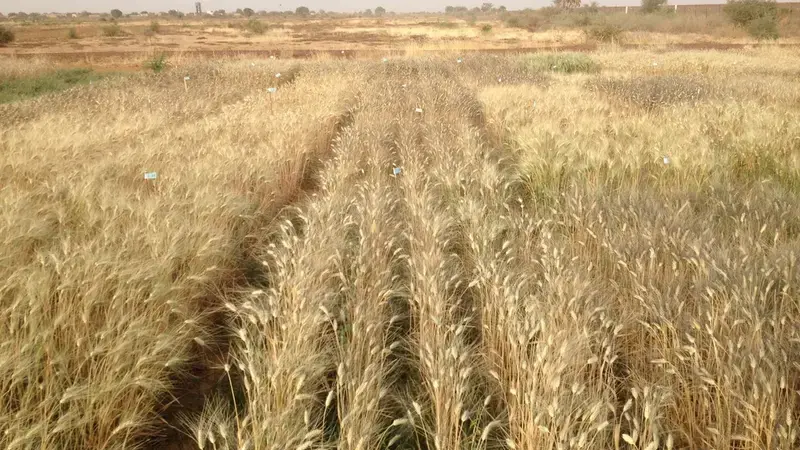Adapting durum wheat varieties to the Senegal River Basin

The durum wheat breeding initiative promoted in West Africa aims to help farmers raise their incomes and diversify diets, as well as improve agricultural systems.
Challenging rice mono-cropping
Senegal, Mauritania, Mali and Guinea are among the poorest countries in West Africa, home to over 2 million smallholder farmers families. The Senegal River traces some of the borders among these countries and offers irrigation water to over 200,000 ha of rice cultivation. Farmers that have the means cultivate rice twice a year between March-June and July-November, but leave the land bare during the rest of the year because rice cultivation is not suitable.
This double crop ensures harvests estimated at 1.5 to 1.6 million tons, which is approximately half of the need of the four countries to achieve food independence. The rice mono-cropping is starting to cause a severe increase of weeds and diseases, making the process hard to sustain in the long term. Besides, it is resulting in rice mono-diets, which is not healthy for children and mothers.
To combat these issues, a new harvest of cereal grains during the winter fallow months (December to March) could help diversify the cropping system, the people’s diets, as well as improve food security. Through the durum wheat breeding effort of ICARDA in collaboration with the Swedish University of Agriculture, Alnarp, supported by funds from the Swedish Research Council, it was possible to develop super-early and heat tolerant durum wheat varieties that can go from sowing to harvest in under four months, fitting perfectly in the winter fallow season.
New food from uncultivated land
The key innovation proposed by Dr Filippo M. Bassi was the development of top yielding durum wheat cultivars that can withstand the tropical winter temperatures in excess of 37⁰ C. The success of the project “Deployment of Molecular Durum Breeding to the Senegal Basin: Capacity Building to Face Global Warming” granted to be awarded the 2017 Olam Prize for Innovation in Food Security.
Some 400 potential varieties collected from 32 countries were tested for two years at two experimental farms in Mauritania and Senegal on the opposite shores of the river (approximately 400 km apart) with different environments in terms of soil type and temperatures. The statistical analysis and performance evaluation have allowed to identify three new durum varieties that combine all required traits: yields above 3 tons per ha, with a top yield peak of 6 tons, growing in just 92 days, and excellent industrial quality of the produced grains.
The potential impact of the project is estimated at 600,000 tons of new food produced from normally uncultivated land (3 tons from each of the 200,000 ha currently under rice cultivation). The high industrial quality of the grains means they could be sold at the international price of USD 340 per ton, equivalent to a new hypothetical business trade of over USD 200 million per year. North Africa imports an estimated of USD 2.1 billion of durum grains per year. If properly politically supported, farmers along the Senegal River can sell the grain to neighboring states, gaining additional income to diversify their diets, promote children education and improve agricultural systems.
The seeds of the three varieties have been multiplied to produce sufficient amounts for farmers sowing. Their delivery to farmers is expected to start in 2018.
Author: Filippo Bassi (ICARDA)

